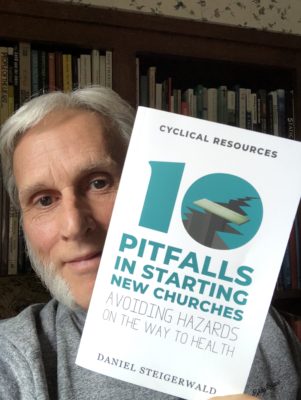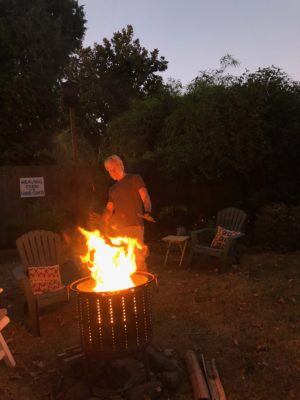Planting Challenge 1: Superficially grasping missional theology and its range of application

This past year I’ve frequented a church that pours incredible energy into all kinds of justice and compassion ministries throughout our city, and even nationally. They strive to give fair representation up-front to diverse voices often not heard in the body of Christ. They send missionaries to serve both locally and in distant lands. Through preaching, teaching and diverse short-term focus-groups, they constantly challenge us to engage the powers oppressing our “neighbors.” Clearly, in many ways they are living well into their slogan: “Seek the peace of the city” (Jer. 29:7).
As much as I appreciate and support this church’s outward stance, I see them falling prey to a common tendency that also plagues many church starters. They seem to superficially or narrowly interpret “missional” to mean any outward, culturally-engaging behavior in the name of Christ. We’re missional because we prioritize outreach, proclaim the gospel, engage in good works in the city, oppose injustice in our world, invite non-Christians to specialized programs and events, etc. Indeed, such behaviors are consistent with being missional. However, I’m convinced this overused adjective actually covers a great deal more. And I would even argue that those other under-accented layers are actually key to making our participation in the missio Dei more sustainable, satisfying and complementary to Christian discipleship.
Here’s what I’m getting at. Missional at its core involves an identity. It’s not primarily an extra set of behaviors we add on to our work of building koinonia and meaningful worship into our gathered life – you know, completing the triangle so that we have a fair distribution of activities in the UP, IN and OUT categories. It’s also not only practices we bring or do in culture, but it involves a co-participation with culture that takes into account where God is already at work in us and ahead of us – note that I just said “in us” and not only out ahead of us in culture.
Missional gets back to the vocation or calling of the church in the world.1 Our gathered worship and community are meant to sustain and fuel us for God’s mission (the missio Dei) in our local contexts and further afield. Flip the UP, IN and OUT triangle on its side with mission on the point – like an arrowhead in motion – and you’re getting closer to how the Scripture narrative portrays God’s people in the world. Using a strong NT metaphor, the “body of Christ” in its local and ecumenical expressions is meant to be an animated body, moving as a visible sign and foretaste of God’s renewing of all things – a renewing that is now underway, with the Spirit of God as Catalyst, that will one day be brought by God to fullness in the new creation.
Most church planting teams can grasp this profound missionary calling of the church. And they can run with it. But what they often neglect to do is to wisely channel and steward all that outward-focused energy/behavior. When teams fail to work smarter as they plunge into the needs and opportunities of their context, this can lead to a slow burn-out of the core group and little lasting missional impact.
Choosing where to invest our energies and with whom to do that requires us to practice discernment on multiple levels. We take stock of the gifts, interests and experience God has placed within our core group. We inquire and listen to discern the needs of our local context, including what people and what ground that God may be stirring our hearts toward. And we simultaneously lean in to hear/see where God and goodness are already at work, At the intersection of these circles of discernment we find our unique zone for missional creating and cultivating. This way of operating allows us to be:
• people of shalom (remember, you can’t give away what you yourself don’t have);
• who bring shalom where it’s missing (think also in our cultural climate of the harder prophetic action of loving our enemies);
• who work with the shalom that’s already present;
• and who bear witness along the way to the ultimate Source of shalom.
As church starters help their forming communities move into their calling in the world, and as they practice the kind of multi-leveled discernment mentioned above, they position themselves for more sustainable and satisfying engagement of their neighborhoods, city and world. Missional becomes more than an exhausting array of outward activities and practices. And more often than not, God surprises us along the way with the discovery of shalom wells, sometimes in the most unexpected of places. How many of us, for example, have learned to drink deeply from the wells of natural and artistic beauty; from deep friendships and partnerships; from the consoling solidarity we find with heartaches and impulses for good in our fellow human beings? Such wells are graces that strengthen our souls, even as we give away what’s given to us in an often-grueling servanthood within broken American culture.
Missional is not a passing fad, it’s a holistic way of life that locks onto hope and accesses Holy Spirit, God’s tangible down-payment guaranteeing our inheritance in the new creation coming (Eph. 1:13-14). It’s worth the time and effort to infuse it into our DNA, our discipleship, and our life in and with the world. As Lesslie Newbigin once said, “Mission is faith in action, hope in action, and love in action.”2 Perhaps these three ideally form the sides of the moving triangle noted above, with love as the driving force and faith and hope as sides of the arrowhead. Imagine what we might be as a people, if we could express missional in such a full-orbed way!
Some coaching questions to deepen missional inspiration and practice:
• What core missional stories and texts does God have your team focusing on? How are these integrated into your vision for a new church expression?
• How might you balance the team’s prophetic unction, so that decision-making in context is based on APEST discernment and not only prophetic imagination?
• What measures are you taking to infuse a healthy missional theology and lifestyle into your lead team and forming community? How will you measure progress in these?
• How do you practice leadership discernment, and how does your creating and cultivating of shalom correlate with your team’s gifts and passions, what you’re learning from cultural “insiders” (esp. non-Christian truthtellers) regarding needs and opportunities, and the evidences of shalom-sowing already happening before you?
———————-
- Michael W. Goheen, The Church and It’s Vocation (Grand Rapids, MI: Baker, 2018).
- Lesslie Newbigin’s The Open Secret (Grand Rapids, MI: Eerdmans, 1995) actually has chapters devoted to each of these: Mission as Faith in Action, Mission as Hope in Action; Mission as Love in Action. I highly recommend the book!



